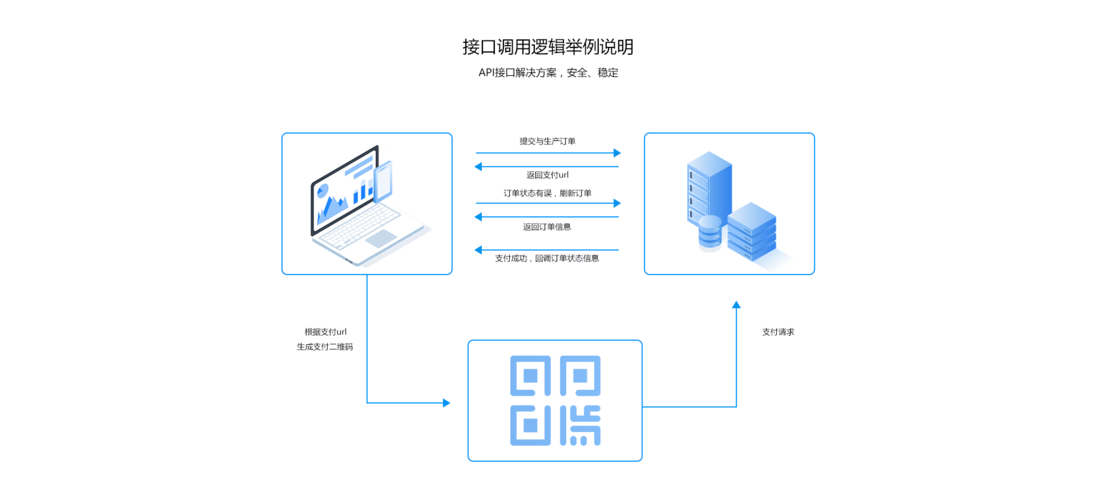您所在的位置:首页 - 百科 - 正文百科
电商app需要什么资质
![]() 珏式
2024-05-06
【百科】
898人已围观
珏式
2024-05-06
【百科】
898人已围观
摘要**Title:UnderstandingandLeveragingE-commerceAPIs**Inthefast-pacedworldofe-commerce,ApplicationProgra
Title: Understanding and Leveraging Ecommerce APIs
In the fastpaced world of ecommerce, Application Programming Interfaces (APIs) play a crucial role in facilitating communication between different software systems. Whether you're a developer, a business owner, or simply interested in the intricacies of online commerce, understanding ecommerce APIs can unlock a plethora of opportunities. Let's delve into the fundamentals and explore how you can leverage these APIs to enhance your ecommerce endeavors.
Introduction to Ecommerce APIs:
Ecommerce APIs serve as intermediaries that allow various software applications to interact with each other seamlessly. They enable functionalities such as product catalog management, order processing, payment integration, shipping, and more. By providing a standardized way to access and manipulate data, APIs empower developers to create innovative solutions and streamline business processes.
Key Components of Ecommerce APIs:
1.
Product Catalog APIs:
These APIs enable access to product information such as name, description, price, and images. They allow you to retrieve, create, update, and delete products programmatically, ensuring synchronization between your ecommerce platform and other systems.2.
Order Management APIs:
Order management APIs facilitate the handling of orders throughout the entire lifecycle. From placing an order to processing payments, updating order status, and managing returns, these APIs automate crucial aspects of ecommerce operations.
3.
Payment Gateways APIs:
Integration with payment gateways is essential for securely processing transactions. Payment gateway APIs enable businesses to accept various payment methods, such as credit cards, digital wallets, and alternative payment options, while ensuring compliance with security standards.4.
Shipping APIs:
Shipping APIs streamline the shipping process by providing realtime shipping rates, generating shipping labels, tracking shipments, and managing logistics. Integration with shipping carriers allows for efficient order fulfillment and improved customer experience.Benefits of Using Ecommerce APIs:
1.
Increased Efficiency:
By automating repetitive tasks and streamlining workflows, ecommerce APIs help businesses operate more efficiently. This leads to faster order processing, reduced manual errors, and lower operational costs.2.
Enhanced Flexibility:
APIs empower developers to customize and extend the functionality of ecommerce platforms according to specific business requirements. Whether integrating thirdparty services or building custom features, APIs offer unparalleled flexibility.3.
Improved Customer Experience:
Seamless integration of various services, such as payment processing and shipping, enhances the overall shopping experience for customers. Realtime updates and personalized interactions contribute to higher satisfaction and increased loyalty.4.
Scalability:
As businesses grow, ecommerce APIs scale effortlessly to accommodate increased traffic, transactions, and data volume. This scalability ensures that your systems can handle growth without sacrificing performance or reliability.Best Practices for Leveraging Ecommerce APIs:
1.
Choose Reliable Providers:
Select reputable API providers with robust documentation, reliable uptime, and responsive support. Prioritize providers that offer security measures such as authentication mechanisms and data encryption to protect sensitive information.2.
Implement Error Handling:
Prepare for potential errors and exceptions when integrating with ecommerce APIs. Implement robust error handling mechanisms to gracefully handle failures and prevent data inconsistencies or service disruptions.3.
Optimize Performance:
Monitor API performance metrics such as response time and throughput to identify bottlenecks and optimize system performance. Implement caching mechanisms and asynchronous processing where applicable to improve responsiveness and scalability.4.
Stay Updated:
Ecommerce APIs evolve over time with new features, enhancements, and security patches. Stay informed about updates and changes from API providers, and regularly review and update your integration to leverage the latest capabilities and improvements.Conclusion:
Ecommerce APIs are indispensable tools for modern businesses looking to thrive in the digital marketplace. By understanding the fundamentals of ecommerce APIs and following best practices for integration and utilization, you can unlock a world of possibilities to enhance your online presence, streamline operations, and deliver exceptional customer experiences. Embrace the power of APIs and propel your ecommerce ventures to new heights of success.
[End of document]
上一篇: 海关拍卖包包
下一篇: 十大奢侈品围巾品牌logo
最近发表
- 缅甸强震前后对比图,大量房屋成平地,揭示灾难的残酷与重建的希望
- 关于缅甸地震的谣言与真相,专家为您解读地震预测与防范
- 缅甸华人,被屏蔽的世界角落
- 汤加群岛遭遇7.3级地震,大自然的力量与人类的应对
- 日本核污染水排放,影响与关注
- 男子遭遇女子追骂,对方自称司法局身份,探究事件的背后与影响
- 高空泳池遇地震,瀑布般的惊险瞬间
- 震中曼德勒市震后航拍画面曝光,灾难与重建的交织画卷
- 街道办强拆鱼塘被判赔380万却无钱支付,反思背后的法治与责任问题
- 缅甸地震,一把巨刀切入地球,揭示自然的威力与人类的脆弱
- 胡塞发言人将儿子送往中国,真相究竟如何?
- 守护天使的力量,地震时护士用身体护住宝宝的勇气与智慧
- 王一博GT中国杯热身赛获亚军——解读他的成功背后的故事
- 缅甸地震,灾难之下的人间悲剧
- 揭秘三十年逃亡路,男子因杀害妻子情夫落网记
- 缅甸华侨遭遇困境,聚焦被困同胞的紧急救援与心灵关怀
- 在缅华人,废墟之下,求救声切切
- 缅甸地震的威力,堪比上千个原子弹的冲击
- 媒体,人类的灾难不该拿来调侃
- 淘宝商城正品,品质生活的守护者
- 莫桦被判无期徒刑,被控受贿超1亿的司法案例深度剖析
- 解锁Levis官网的无限可能——你的时尚秘密基地
- 揭秘黄子佼事件,关于性侵未成年少女的深度探讨
- 探索运动与时尚的完美结合
- 外交部回应李嘉诚集团出售海外港口,透视背后的国际商业动态与国家策略互动
- 探索 Coach 美国官网,购物、折扣与品牌魅力全解析
- 四川按摩店女老板遇害事件揭秘,警方的坚定回应与社会的深思
- 如何高效利用淘宝客服24小时热线人工服务,解决购物难题
- 揭秘缅甸地震,为何能量释放如此剧烈?
- 揭秘天猫商家数量与平台生态
- 北大研究生当食堂阿姨,跨界背后的故事与启示
- 解锁运动潮流新天地——Adidas美国官网全攻略
- 遗产分配背后的故事,亲情与法律的交织
- 上品折扣怎么样?全面解析助你更明智地消费
- 为长者护航,破解老人租房难的社会议题
- 今世缘酒价格表全解析——品质与价值的完美平衡
- 儿子给腰突父亲买40小时硬座票,一份孝心与责任的体现
- 淘宝网帽子——时尚与实用的完美结合,让生活更精彩!
- 财政局副科长被举报出轨,纪委回应,严肃处理,维护纪律
- 打造吸引顾客的店铺门面
- 备孕新篇章,一位90后小伙与生蚝的备孕故事
- 十个做淘宝九个失败?揭秘背后真相与成功秘诀
- 缅甸遭遇地震浩劫,生命逝去,伤痛难以言表
- 淘宝秒杀预告——抢到就是赚到!你的购物新利器
- 任教31年的老师临近退休却突遭解聘,反思与启示
- 二手手机淘宝网,淘到好货的秘诀,让环保与实惠兼得!
- 雷军回母校遭两级反转,一场意外的打扰?
- 本来生活网官网——让每一天的餐桌都充满惊喜
- 90后医生下班开宝马摆小吃摊6年,追梦人生与医者仁心的完美结合
- 探索兰蔻美国官网,美丽之旅的起点



